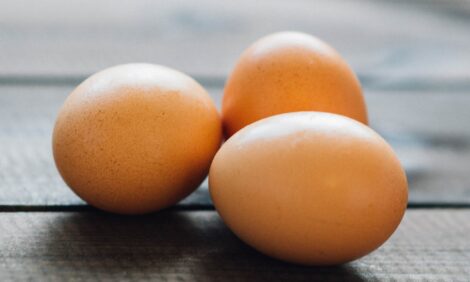



Chicks Inoculated with Microbes Show Improved Feed Efficiency
US - Chicks inoculated at hatch with intestinal microbes had significantly higher growth rates and feed efficiency than those that were not inoculated, according to recently completed research from the USDA Agricultural Research Services and the University of Georgia in Athens.The project was led by Dr Nelson Cox and Dr Brian Oakley and was funded by USPOULTRY and the USPOULTRY Foundation.
The researchers used intestinal microbes from a line of broilers selected for high feed efficiency and compared them with microbes from a line of broilers selected for low feed efficiency to inoculate newly hatched broiler chicks.
Statistical comparisons showed several groups of bacteria were significantly over-represented in the more feed efficient birds. However, the origin of the intestinal microbes did not turn out to be a significant factor in the improved feed efficiency of the chickens.
The difference in feed efficiency between inoculated and non-inoculated birds appears to be mediated by the microbiota, the scientists reported, as the two groups had significantly different microbial communities at the end of the experiment.
These microbes will be further characterised to understand exactly what mechanisms are driving the differences the scientists observed. Longer term, there is great potential to provide value to the industry by developing the microbes into probiotics to improve feed efficiency and thus reduce feed costs.











